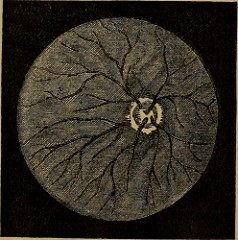Plaque psoriasis is the most common form of psoriasis affecting around 90% of all those suffering with this skin disease. Usually mild to moderate psoriasis can be treated effectively by topical medications, but in more stubborn or severe cases it needs something stronger and more effective. This is why oral retinoids are prescribed. Here we will discuss one of these oral retinoids, Soriatane.
What is Soriatane and who is it prescribed to?
Soriatane is an oral medication prescribed to treat severe cases of plaque psoriasis, the most common form of psoriasis, when other treatments have failed to work. Psoriasis is classed as severe when it affects more than 10% of your body or when it stops you from performing everyday activities.
Soriatane, also known as acitretin, is an oral retinoid, a synthetic form of Vitamin A. Doctors have long known that large doses of Vitamin A can help reduce the thickness and scaliness of the skin. However, large doses are very toxic to the body and can cause damage to the liver. Soriatane was developed to mimic the effects of Vitamin A without same levels toxicity. It works is by controlling the reproduction of skin cells, the speed at which the cells grow and shed, and by decreasing inflammation. Unlike some other psoriasis medications, Soriatane does not cause cell damage or suppress the immune system.
Clinical studies have shown that a large percentage of patients taking Soriatane significantly improved within eight weeks and about one third experienced almost complete remission from their symptoms within six months. This is why Soriatane is claimed an effective treatment for severe plaque psoriasis. However, it is important to note that taking Soriatane can cause risks for pregnant women.
Who shouldn’t take Soriatane?
In 1983 another retinoid, Accutane, was reported to cause birth defects in some babies born to women taking this drug. There also seemed to be a higher risk of miscarriage for pregnant women. It was, therefore, recommended that this and other closely related retinoids, including Soriatane, shouldn’t be taken by pregnant women or women planning to become pregnant within the next three years. In fact, women of childbearing age have to take two negative pregnancy tests before they can start taking Soriatane. They also have to agree to use two forms of contraception at the same time, at least a month before the start of treatment, during the treatment and for three years after completing the treatment. It’s advised not to take progestin-only contraceptive pills since they may not work while taking Soriatane.
It’s because taking Soriatane is highly dangerous for women who may become pregnant that this drug is mainly recommended for men, post-menopausal women or for women who have undergone sterilization or a hysterectomy.
Are there any other side effects of Soriatane?
Apart from possible risks to pregnant women, there have been other reported side effects. Common side effects include dry skin and lips; whilst less common are joint pain, abnormal bone growth, changes in cholesterol and triglyceride levels and vision problems. Even more serious side effects reported are liver problems, pancreatitis and even cases of depression and thoughts of self harm. Anyone experiencing any of these symptoms should seek the advice of their physician.
Suffering with severe plaque psoriasis, or indeed any other form of psoriasis, can cause many problems both physically and mentally. The good news is that there is help available and you owe it to yourself to gain more information so that you can take effective action. To learn more about plaque psoriasis and possible psoriasis cures, visit my Clear Skin Guide website.

